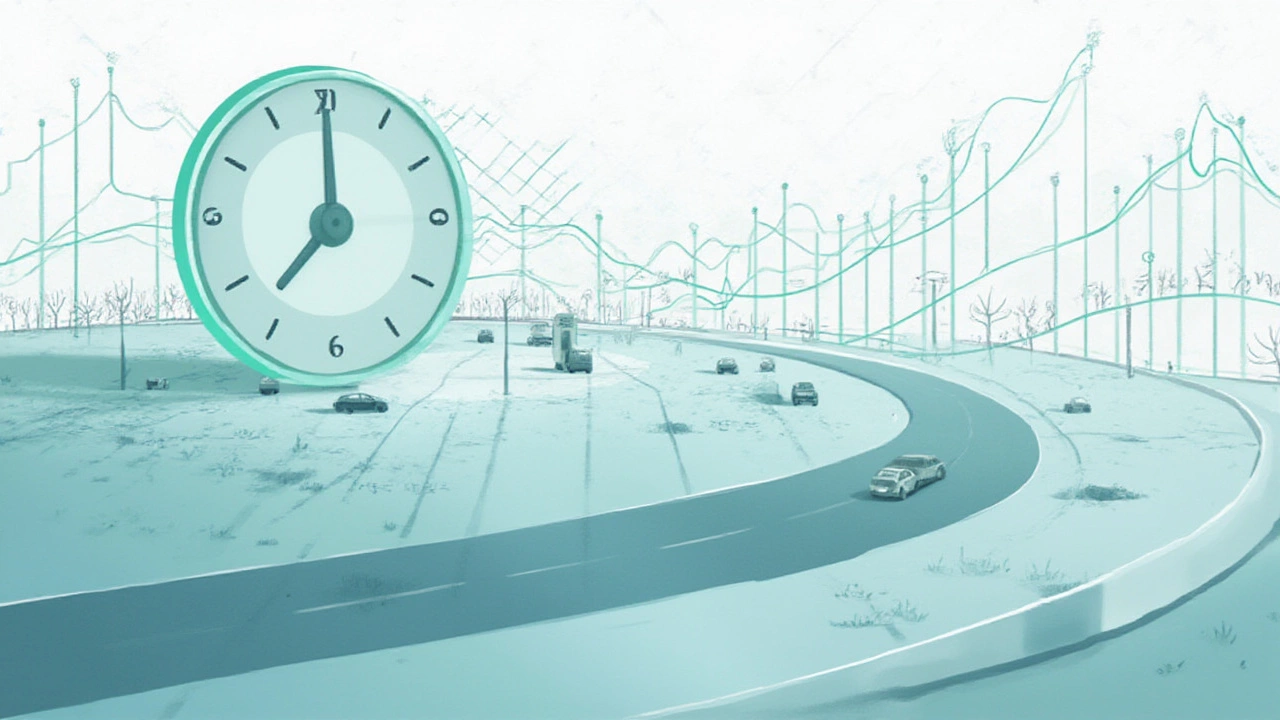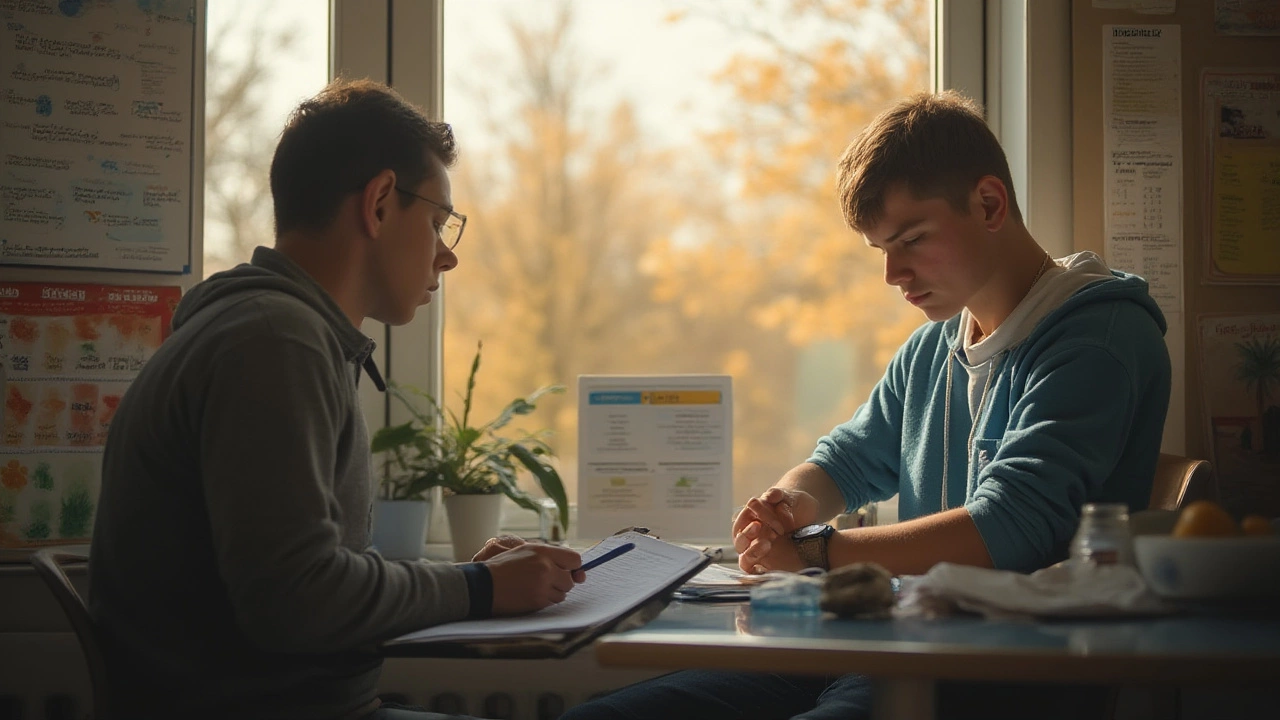Picture the nerves: sweaty palms, heart thumping like a faulty car starter. Yep, it's driving test day. Friends tell you to book early—or maybe in the afternoon. There's a wild idea that examiners are crankier on Mondays. But is any of it true? Pass rates aren't just about how well you turn the steering wheel. People swear by certain days, times, and even months. If you're about to book your test and actually want the best shot at passing, things are a little more interesting than you might think.
What Do the Stats Say About Driving Test Pass Rates?
First, let's settle it: Are some test slots luckier than others? Plenty of official data exists—especially from the UK's DVSA—and the trends are eye-opening. Traditionally, driving test pass rates hover around 45-48% in the UK. But when you break things down by time of day, time of week, or even season, little differences pop up. For example, according to the DVSA, early-morning slots (think 7:30-8:30 a.m.) see slightly higher pass rates than mid-afternoon ones. Some years, midday (roughly 11 a.m. to 1 p.m.) slots even outperformed morning slots by a small margin, but it's rarely more than a 5% swing.
Why? Fewer cars, maybe? Less examiner fatigue? People booking 7:30 a.m. often prep harder—nobody accidentally picks that hour unless they're keen! In terms of days, Wednesdays and Thursdays show a tad higher pass rates, while Mondays tend to be the lowest. Possibly it's nerves after the weekend, or maybe clogged city traffic just starting up. As for months, tests in winter show a dip—road conditions get worse, after all. But the difference isn’t massive.
| Time Slot | Average Pass Rate (%) |
|---|---|
| 7:30 - 9:00 a.m. | 49 |
| 9:01 - 11:00 a.m. | 47 |
| 11:01 a.m. - 1:00 p.m. | 48 |
| 1:01 - 3:00 p.m. | 46 |
| 3:01 - 5:00 p.m. | 45 |
The spread is not earth-shaking, but it’s there. Interestingly, female candidates have a slightly higher pass rate in early-morning tests, while male candidates even out across the day. Morning slots face less traffic, so fewer random weirdos cutting you off at a roundabout. But don't get cocky—a rushed breakfast and sleepiness aren't your friends, either.
Is There Really a 'Best' Time or Day to Take Your Driving Test?
People love superstitions. Test after lunch, they say you'll be sleepy. Or book right before the examiner's holiday—they'll be in a better mood. None of these are backed by hard evidence. If you're looking for a silver bullet, though, those early-morning or just-before-lunch slots do edge ahead by a nose.
Let's get real: the margin between passing at 8:30 a.m. and 2:30 p.m. is about 3-4 percent. On a rainy Monday you might feel unlucky, but skill wins out more than the clock. If your entire confidence rests on the 10:51 slot instead of 11:21, you may have bigger issues than the schedule. Still, booking on a Wednesday or Thursday after a good sleep, avoiding rush hour, gives a psychological boost. The numbers back you up, a little.
There is one time you should avoid if you can: peak drop-off and pick-up times. Schools unleash a chaotic fleet of parents, dogs, and delivery vans right around 8:45 a.m. and again after 3:00 p.m. No examiner will dock you marks for someone else's mistakes, but more moving obstacles mean more chances to mess up. The sweet spot? About 10:30 a.m. to noon strikes a balance—awake, caffeinated, and less cluttered roads. Plus, examiners haven’t hit post-lunch food comas just yet.

Factors That Matter More Than Timing
Have you ever heard of the candidate who flubbed parallel parking because a stray seagull landed on the car hood? (I know, it sounds made up, but true story from my mate's cousin.) Point is, real life has more curveballs than test-time superstition. What matters so much more than time of day is your mood, your readiness, and how well you handle normal stress. People who overthink the time often overlook these basics:
- Preparation is king: Test slots do not change your skills. If you can’t confidently handle all the maneuvers with your instructor, time is irrelevant.
- Your examiner doesn’t want to fail you. Some candidates walk in seeing their examiner as the enemy. But most examiners genuinely prefer to pass people, if they’re safe. It’s not about catching you out with hard questions, but about daily road safety.
- Pick a test center that feels right. Some centers have higher pass rates because their streets are less chaotic or routes are easier. Locations matter more than timing for many people. In Wellington, Paraparaumu is famously gentler than downtown.
- Rest, hydration, and food: Obvious, but hungry, tired drivers make dumb mistakes. Book a slot that lets you eat a steady breakfast and get a proper sleep—even if that means grabbing the 11:00 a.m. slot.
- Mock tests. If your instructor offers these, take them. Testing under pressure is different to lessons: everything feels real, your mind races, and nerves pop out. The more tests under these conditions, the less SHOCK you’ll feel on the real day.
Weather plays a part too. Heavy rain, glare from winter sun, or strong wind can change your comfort on the road. Test routes often avoid major highways but still, a blustery Wellington day is no one’s favorite for tricky hill starts. If you’re a new driver, more lessons in tough weather will help you ace whatever day or time you snag.
How to Choose Your Perfect Driving Test Slot
What if you have to take the only slot left—the dreaded 3:45 p.m. on a rainy Monday? Don’t panic. You can still boost your odds with a few tactics.
- Scout your test time. If possible, practice around the same time of day and week. If your slot is late afternoon, ask your instructor for a lesson then. You'll get to know the traffic and sunlight conditions.
- Sleep like you mean it. Yes, you’re nervous. Settle down without scrolling until 2 a.m. Sleep is your best secret weapon for focus and reaction time.
- Keep test day calm. Try to minimize stressful events earlier in the day. If possible, take the day off work or study. Avoid arguing with your sibling or reading bad news before you leave home.
- Eat what works for you. Heavy greasy breakfasts or skipping your meal can send your nerves spinning. Aim for steady energy—fruit, eggs, or whatever helps you feel your best.
- Arrive with time to spare. Nothing wrecks focus like a mad dash to the test centre. I always arrive 15-20 minutes early with Rufus’s walk squeezed in first—nothing like fresh air and a wagging tail to calm the nerves.
- Reschedule if you’re really off. Feeling ill, exhausted, or deeply anxious? Sometimes the best move is to rebook. A small fee is nothing if it costs you a serious fail.
And no, there’s no secret handshake or password to impress the examiner. Simple courtesy always helps. A “good morning” and a steady approach stand out more than legends about magical test slots.

Real Stories and Final Thoughts on Driving Test Timing
You know what sticks in my mind? The time Miranda passed on her third attempt—2:12 p.m. on a Wednesday—after failing twice at 7:35 a.m. on previous Mondays. Was it timing or experience that made the difference? She reckons it was the banana she ate, but I think it was the four hours of gritty, real-world practice we squeezed in that week. My mate Simon failed at the “lucky” early slot, but nailed it the next week after lunch, because he'd finally gotten comfortable in busy traffic.
There are people who've driven through sudden downpours or got stuck behind tractors, but came out with a pass. The time didn't define their result—their practice and ability to keep cool did. One friend even got the supposed 'worst' slot right after 3. Just tackled it slow and steady and walked away beaming.
If you want to stack the odds in your favor, sure, book a midmorning Wednesday if you can. Just don't sweat it if you end up with something else. Bring your best self, your sharpest skills, and maybe—just maybe—a lucky pair of socks under your sneakers. Now, if you’ll excuse me, Rufus is staring at the leash and I swear he’s memorized the word "traffic." Good luck. You’ve got this.

